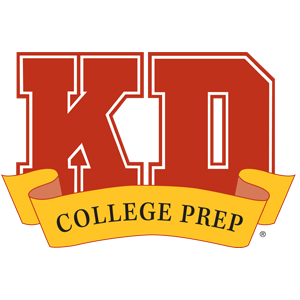We all know that colleges care about your GPA and how you perform in your classes. After all, higher education is focused on academic performance. However, it’s important to know that colleges want students who go beyond simply making good grades. At this point, you might be asking, “What do colleges look for besides grades?”
This isn’t meant to overwhelm you or lead you to believe that you aren’t doing enough to get into your top-choice school. The following list is intended to help you see that while grades are definitely important, they aren’t everything. It’s good to know what colleges look for besides grades because there are other ways to show a school that you’re a great candidate. Think of it as a list of ways to present all the different aspects of yourself. After all, you are more than just your grades.
With that in mind, let’s look at 10 ways to stand out to colleges that don’t involve your GPA.
10 Ways to Stand Out to Colleges That Don’t Involve Your GPA
1. Volunteer
Schools desire students who care about their local communities and other people’s wellbeing. Volunteering shows schools that you are willing to donate your time and skills to better the world around you.
Volunteer experiences can benefit you by expanding your worldview and giving you opportunities to practice professional skills. Many people also discover their passions or establish purpose and meaning in their lives when they volunteer for causes that they care about.
Top colleges value compassionate and empathetic students because they make better teammates, employees, and community members. Competitive schools like Harvard and Stanford want their students to go on and make an impact on the world.
Volunteering also teaches compassion and empathy because it shows students how to focus on other people instead of themselves. It’s important to work to understand what others need and how you can support them.
To find ways to get involved, check out these volunteer opportunities for high school students.
2. Participate in Extracurriculars
Involvement in extracurricular activities is a great way to help admissions committees get to know you and see you as a well-rounded individual. But beyond that, extracurriculars allow you to gain valuable experiences and skills that help shape who you are.
High school is a time of self-exploration, which is why this time is often described as the “formative years.” There will come a time in the near future when you’ll have to select a college major or explain why you chose a particular career path. Extracurricular activities give you experiences that will help you answer those bigger-picture questions.
It’s also important to choose activities that actually interest you. Remember that this is YOUR high school experience. Parents and friends may throw ideas at you, but in the end it’s best to be honest with yourself about what you like and dislike. In other words, don’t choose a sport or instrument to learn just because it was someone else’s idea.
Your participation can demonstrate the following aspects, traits, and skills.
- Engagement in your school or local community
- Specific interests and passions
- Dedication
- Leadership experience
- Time-management skills
Think quality over quantity when selecting your extracurriculars. In 9th grade, it’s okay to try out many clubs or extracurriculars throughout the year. But as your course load starts to shift toward more advanced classes, you may have to become more selective with how you spend your time. Just remember that colleges will look at the duration of your involvement in a club or extracurricular, and you’ll want to show that you remained committed to some of your extracurriculars (specific advice varies depending on your college list).
3. Develop Leadership Experience
Serving in a leadership role helps you grow and develop highly valued skills. You might be secretary of an anime club, drum major, team captain, or editor of your school newspaper. Maybe you’re a coach for a youth soccer team or a camp counselor. Taking on a leadership position helps you develop and strengthen the following skills and traits:
- Responsibility
- Dependability
- Willingness to take risks
- Empathy
- Communication
- Time-Management
- Problem-Solving
- Decision-Making
- Active-Listening
- Critical Thinking
Possessing these will help you in your personal and professional life, as well as with your college application. Colleges look for students who demonstrate these skills and traits. They want individuals with the potential to serve as leaders on their campus and in their future communities after graduation.
4. Produce Strong Test Scores
A competitive SAT® and/or ACT® score can benefit your application in a few ways.
First, it demonstrates your academic and testing skills. For decades, colleges have used scores from admissions tests to gauge whether a student is ready for college-level material.
In addition, a test score that is in line with or above what is typically accepted can help move your application to the accepted pile. Top colleges have only become more competitive over the years, with admission rates reaching record lows in 2022. Good scores can help you stand out in a sea of college applications.
In recent years, many colleges have moved to a test-optional admissions policy. This means that test scores are not required for admission. However, the vast majority of test-optional colleges will still review test scores if you submit them.
Imagine this scenario: a college admissions officer is reviewing two nearly identical applications. They both have the same GPA, great essays, similar transcripts, and the same level of involvement in extracurriculars. However, one student submitted strong test scores while the other student applied test optional. Guess who stands out?
There are certain situations when we would suggest a student apply test optional, but our general advice to students is to take both the SAT and ACT tests and see how they do. In most cases, a strong score can help.
5. Write a Meaningful Admissions Essay
Admissions committees read thousands of essays, so it’s crucial to write one that sets you apart. You’ve got to write in a way that captures their attention and engages them, while also showing them who you are. The key here is to be unique and genuine. Admissions committees get enough boring and redundant essays.
But you aren’t reading this article so that you can blend in with all the other applicants, are you? You’re here trying to figure out how to stand out to colleges. Just that little bit of information tells me that you have the drive to make your dreams happen, and colleges want to see that in potential students. Take some time to think about what else makes you different from other people. Then think of a unique way to communicate that. Maybe that’s by sharing a story that shows your skills, interests, and drive.
No matter what you share about yourself in your admissions essay, be honest. Think of it this way, if you were an admissions counselor sorting through thousands of similar essays, wouldn’t you be relieved to find one that’s authentic and engaging? Write something an admissions official would actually want to read.
We know application essays are one of the more challenging pieces of the admissions process. Having a seasoned professional read your essays and give you honest feedback can help. Learn more about our college counseling programs.
6. Complete Challenging Courses
A transcript filled with challenging coursework provides more meaning and context to your GPA. It gives admissions committees an idea of how hard you’ve worked to get your grades. Competitive colleges look for individuals who accept challenges instead of choosing easier options. They want to see students who are motivated, are unafraid of hard work, and take advantage of the learning opportunities in front of them.
When you and your guidance counselor plan out your upcoming schedule, think about taking an Advanced Placement (AP), honors, or International Baccalaureate (IB) class when possible. However, we know that not all schools have the resources to offer these advanced classes. Colleges know this too. They will review your school’s profile when looking at your transcript.
7. Gain Professional Experience
Maintaining a job or internship while in high school demonstrates your work ethic, professionalism, and exposure to your field of interest. It can also provide you with opportunities to network with professionals, which can result in future job offers as well as great references to use on school or job applications. (More on that below).
Both jobs and internships give you hands-on experience in professional settings. No matter what type of position you have, be sure to make the most of the opportunity. Get to know other employees and put forth your best effort. Holding a job communicates to colleges that you’re reliable, mature, and can perform in a professional setting.
Quick tip: Include your part-time job on your college resume.
8. Obtain Quality Recommendations
It’s important to be strategic when asking someone to write a letter of recommendation for you. You want to ask a teacher, counselor, or supervisor who knows you well and has seen how you perform either academically or professionally. Request a letter from a teacher with whom you have a good relationship and are active in their class. That way they can write about your academic capabilities as well as your level of engagement.
If you can’t find a recommendation from one of the sources above, ask your work or internship supervisors, band director, or coach. These are also excellent options because they can speak to your professionalism, work ethic, skills, and dependability.
The most important thing to keep in mind when seeking a letter of recommendation is to find the individuals who can provide a quality recommendation. For example, if a teacher compliments you on a school project or admires you for helping a struggling classmate, remember that! It can help to remind him/her of that when you request your letters of recommendation.
9. Earn Awards and Recognition
Let’s be honest. Colleges like it when their students make them look good. And they love to brag about the achievements of their incoming freshmen. Students and alumni who receive recognition out in the world draw attention and interest back to their schools. If you follow any colleges on social media, you’ll see posts highlighting the achievements of their students and alumni.
If you receive awards in high school, colleges are more likely to see you as an applicant with the potential to make them look good in the future. These awards might be academic (E.g. National Merit® Scholarship), civic (E.g. Youth Impact Award, Civic Expression Award), or extracurricular (E.g. First Team All-District for your sports team).
10. Engage in Relevant and Ongoing Contact With the School
Another excellent way to stand out is to build relationships with campus staff and show that you’re truly interested in attending the school. There are a variety of ways to demonstrate your interest and build those connections.
Ways to Show a College That You’re Interested:
- Attend a campus tour
- Meet with an admissions counselor
- Meet with the department chair of your chosen major
- Attend admission events
- Apply early
- Follow the school and department on social media
- Subscribe to the school and department email lists
Bonus Tip: Don’t ignore emails – Make sure you open the emails that you receive from the school or department. Some schools track whether or not you open emails that they send you.
It’s important to understand what colleges look for besides grades because schools want to see more than your GPA. After all, there’s so much more to you than that! Your task now is to use the list above to figure out how to best show all the different aspects of yourself. Show them what awesome things make you, well, you.
Need Help Preparing for College?
KD College Prep offers a variety of test prep and college counseling programs to help you put forth your best college application. Through college planning seminars, test prep courses, boot camps, and one-on-one sessions, we guide our students through every step of the college admissions process. To learn more about our programs, schedule a free consultation with a member of our team.
More From the Blog:
How to Fall in Love With the Right College
Love works in mysterious ways. Whether you’re randomly struck by Cupid’s stray arrow, meet “the one” in middle school, or go from foes to forever,
When Do Regular College Decisions Arrive in 2025?
For college-bound seniors, few things are as difficult as waiting for college decision release dates. Even if you’ve already heard back from your early action
College Counseling Team Shares Takeaways From 2024 NACAC Conference
On Sept. 26-28, the college counseling team at KD College Prep (KD) attended the annual NACAC Conference in Los Angeles, gaining valuable insight into the
College Application Deadlines: Fall 2025 Freshman Admission
After you’ve narrowed down your list of schools and know which ones you want to apply to, you’ll need to make a note of their
More Than Luck: 15 Ways To Improve Admissions Odds
You can take that four-leafed clover out of your pocket. With application numbers surging in recent years, we understand why students do everything they can
College Fair Guide: 16 Tips For Talking To Admissions Reps
Narrowing down which colleges to apply to is a long and stressful process for some students. It’s hard to decide which colleges feel like a














































